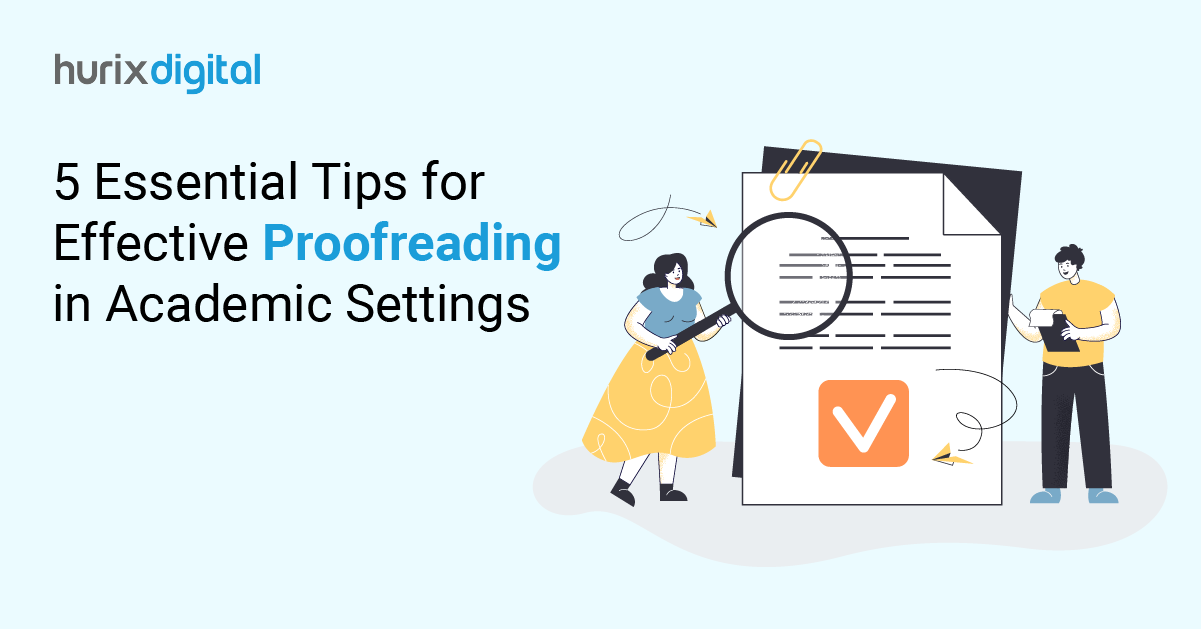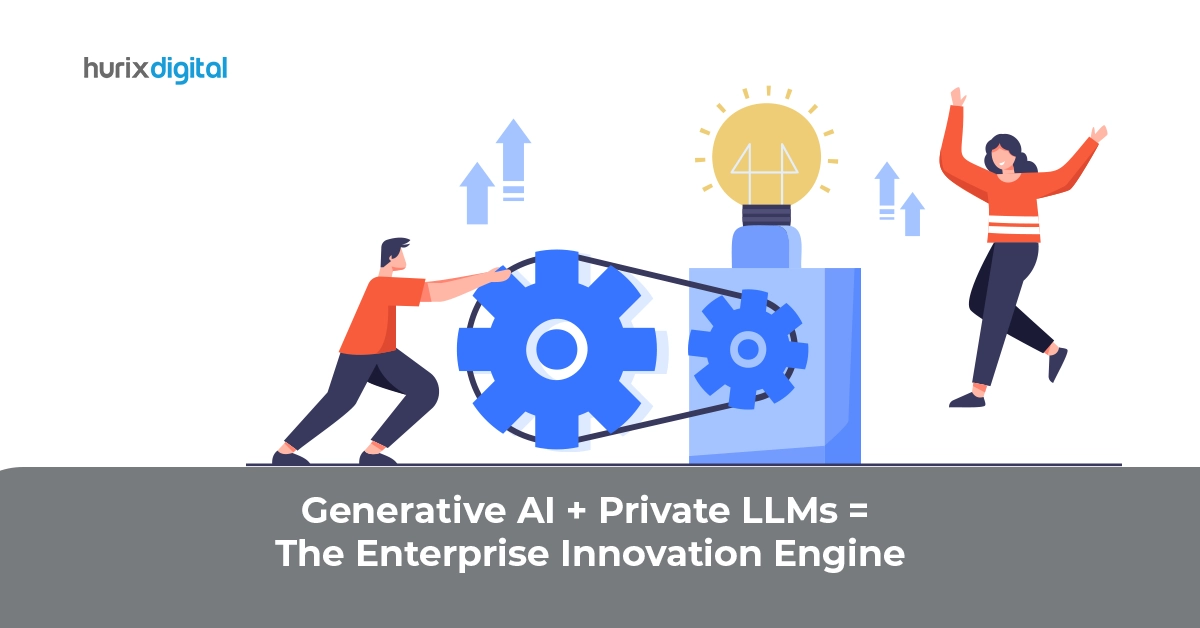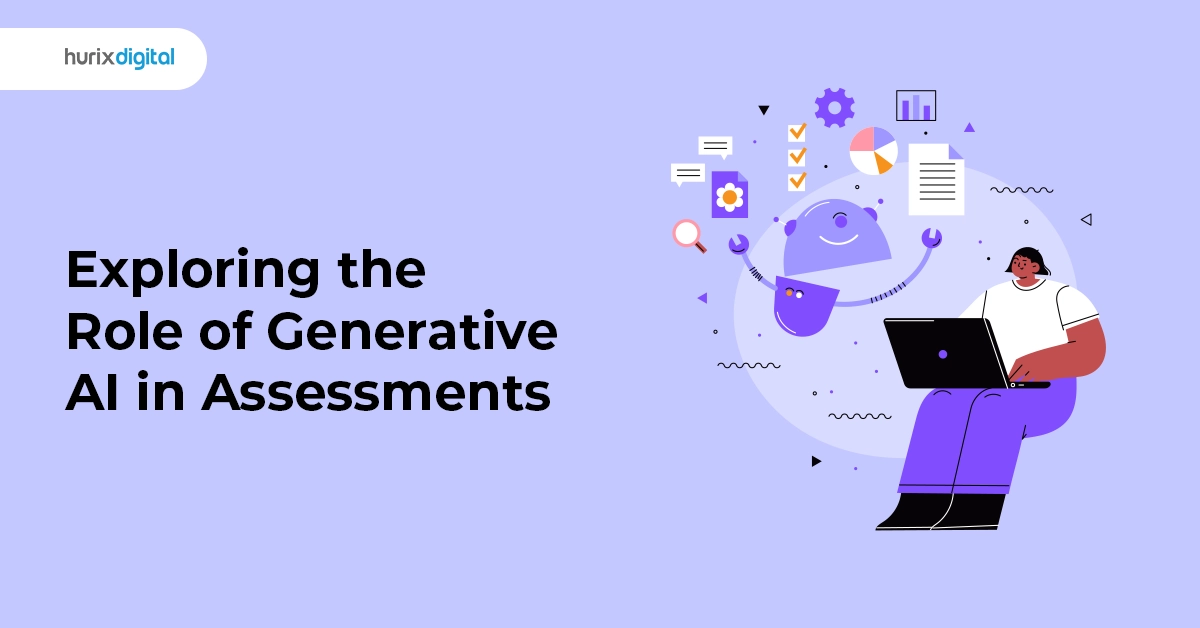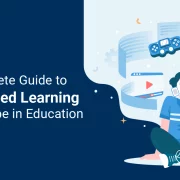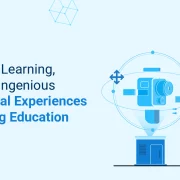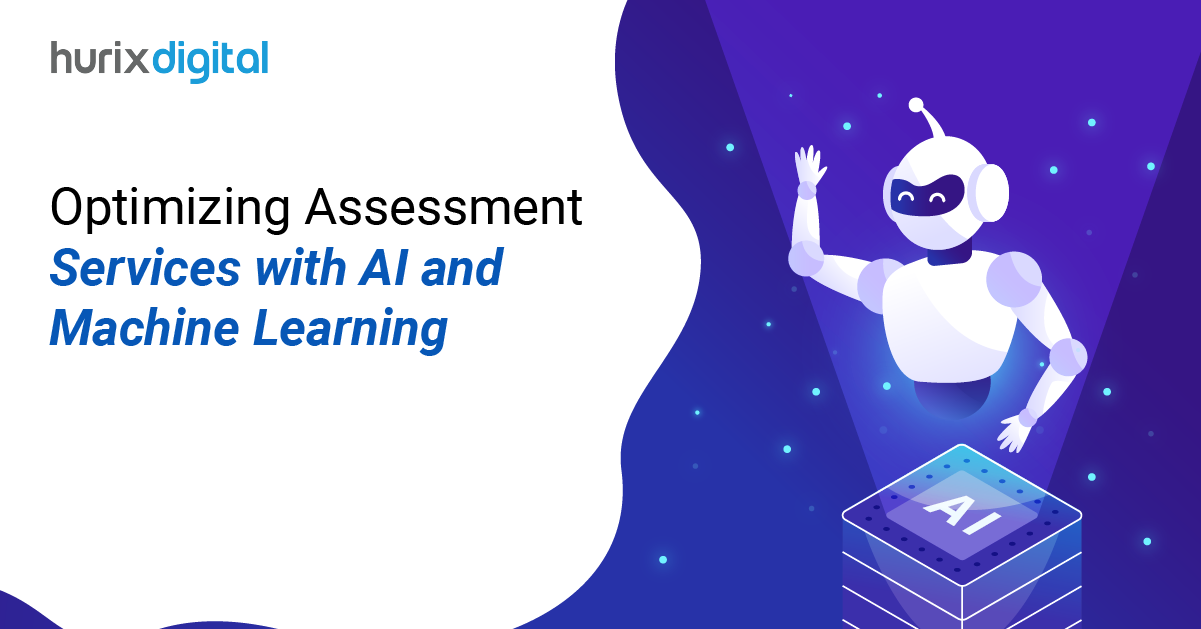
Optimizing Assessment Services with AI and Machine Learning
Summary
This blog explores how AI and machine learning enhance assessment quality, efficiency, personalization, and reduce bias, featuring tips and applications like predictive analytics and automated scoring.
Technology is rapidly changing daily. A report from the World Economic Forum concludes that artificial intelligence (AI) in education is increasingly being implemented and predicts that this market will reach 21 billion dollars by 2028.
Another important development is the use of machine learning (ML) for educational assessments to improve with AI technology. If used appropriately by their AI in assessment services, this will significantly improve the quality, efficiency, and impact of the assessment methods in a school or organization.
This blog details the role of machine learning and AI in assessment services and the benefits of AI in assessments.
Table of Contents:
- The Role of AI in Assessment Services
- Benefits of AI-Powered Assessment Tools
- Tips for AI-Driven Assessment Strategies
- Machine Learning for Assessments in Education
- Final Words
The Role of AI in Assessment Services
The assessment field is changing significantly thanks to AI. Artificial intelligence is making things easier by handling tasks and offering insights based on data, transforming assessment processes.
AI in assessment services can create high-quality questions and offer effective feedback. This shift aims to boost the efficiency, precision, and impact of assessment procedures, ultimately resulting in results for students:
1. Item Generation
AI in assessment services can create a vast pool of assessment items that are aligned with specific learning objectives. This not only enhances the variety of test questions but also helps to reduce bias and save time for educators.
2. Test Assembly
AI-driven assessment strategies optimize the selection and distribution of test items to ensure that assessments are balanced and reliable. This improves the overall quality of tests, ensures content validity, and enhances assessment efficiency.
3. Adaptive Testing
AI adjusts the difficulty of test questions based on a student’s performance, providing a personalized assessment experience. This can increase student motivation, improve item discrimination, and maximize assessment efficiency.
4. Automated Scoring
AI accurately and efficiently scores assessments, including multiple-choice, essay, and performance-based tasks. This saves educators time, improves scoring consistency, and provides faster feedback to students.
5. Performance Analytics
AI in assessment services gives full analyses of student performance, from areas of strengths and weaknesses to improvements. This facilitates data-driven instruction, targeted interventions, and personalized learning.
Also Read: How Dictera’s AI-Powered Features Are Helping Educators Create Better Assessments?
Benefits of AI-Powered Assessment Tools
AI-powered assessments benefit schools and universities by providing real-time feedback on student progress, fueling data-driven decisions, and supporting personalized learning. Moreover, AI can be useful in reducing bias in assessments and is thus fair and just toward all learners.
Combining all these advantages, AI in assessment services provides a fair and influential assessment procedure.
1. Improved Assessment Quality
AI creates reliable, valid, and fair assessments by reducing human error, optimizing item selection, and detecting potential bias.
2. Enhanced Efficiency
Automated processes streamline assessment administration and scoring, saving educators valuable time and resources that can be redirected toward student interaction and personalized instruction.
3. Personalized Learning
AI-powered adaptive testing personalizes assessment for every student based on his/her individual needs and abilities to maximize learning gains and provide a more engaging learning environment.
4. Data-Driven Decision Making
AI allows instructors to gain insights into student performance through the analysis of large amounts of data. Educators can use this information to inform instructional practices, identify at-risk students, and develop targeted interventions.
5. Reduced Bias
AI can help reduce bias within assessment questions and scoring by discovering patterns and possible biases within the data. This justifies fairer test procedures for all examinees.
Tips for AI-Driven Assessment Strategies
To use AI effectively, assessment objectives and goals must be stated for successful assessments. This means determining the anticipated outcome, the target audience, and what information to collect. The institution will thus be in a position to determine the kinds of tools needed based on requirements.
1. Establishing a Foundation
This is crucial for supporting AI-driven assessment strategies and involves investing in data storage, processing capabilities, and network infrastructure. Moreover, ensuring compliant data management systems is essential to safeguarding student privacy and maintaining data accuracy.
2. Data Literacy
Promoting a culture of data literacy and proficiency in AI among educators is key to AI integration. This entails offering training programs and development opportunities to equip educators with the skills needed to comprehend, analyze, and apply AI insights.
3. Collaborations
Collaborating with organizations or consultants who have expertise in AI can expedite optimizing assessments with AI. These specialists can offer advice and assistance, as well as access to state-of-the-art technologies and industry best practices.
4. Streamline Processes
Deploying AI in assessment services gradually through pilot programs enables adoption, evaluation, and improvement over time.
5. Trial and Error
By initiating small-scale trials before expanding the deployment, educational institutions can evaluate the efficiency of AI tools, recognize obstacles, and make tweaks. This step-by-step approach guarantees enhancements and fine-tuning of AI-driven evaluations.
Machine Learning for Assessments in Education
The role that machine learning for educational assessments plays in the heart of AI is, hence, at the very core of any assessment optimization using AI. The algorithms review large datasets, enabling the assessment decisions to be informed by recognizing patterns, trends, and relationships.
Some of these key applications include:
1. Predictive Analytics
By training on historical student performance data combined with demographic and other relevant factors, ML algorithms yield predictions of future outcomes for students. In this way, educators can identify at-risk students and apply focused interventions.
2. Item Response Theory (IRT)
This statistical model estimates the test-takers’ abilities and the difficulty of test items. ML can enhance IRT by processing large datasets to improve these estimates, leading to more accurate and precise assessments.
3. Anomaly Detection
The application of ML algorithms recognizes uncommon patterns in assessment data, which may indicate potential cheating or other irregularities. This helps maintain assessment integrity and ensures fair evaluation.
4. Personalized Assessment
ML can recommend tailored assessments or learning paths by analyzing individual student performance data. This fosters a more personalized learning experience and maximizes student engagement.
5. Automated Test Assembly
ML can optimize the creation of assessments by selecting items that best align with learning objectives and ensuring appropriate difficulty levels. This saves educators time and improves test quality.
Also Read: Top 8 Factors to Consider While Choosing the eLearning Authoring Tool
Final Words
Machine learning and AI in assessment services have revolutionized the field, offering opportunities to improve student learning and results. By utilizing these technologies and implementing approaches, educational assessments can elevate their services and effectively promote excellence.
The above pointers explain the role and benefits of machine learning and AI in assessment services, helping you create a smooth educational journey and achieve greater success.
At Hurix Digital, AI and machine learning are integrated into assessments, assisting managers in educational program development with data-informed choices that enhance student outcomes.
Feel free to schedule a consultation call today.

Senior Vice President – Business Development
Over 25 years of experience in the edtech and workforce learning industry with strong skills in Business Development, Customer Relationship Management (CRM) and Strategy.
